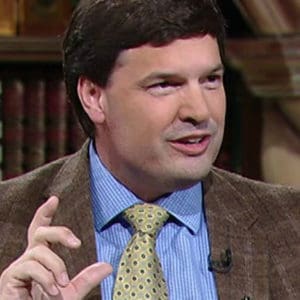At the Eucharist, we give thanks through the Eternal Son of the Father under the signs of bread and wine to fulfill a sacred purpose. This purpose is written into the very order of creation. It is intrinsic to the very structure of time and space. What we gather to do is therefore something right and just to do in the world. Yet, we are often blind to this whole mystery because, too often, we have closed the eyes of our hearts. If someone does not care enough to help us open our eyes, we can be blind to the great purpose our whole life. If we feel goaded and even haunted by the unrealized “ought” this state of affairs causes us to suffer, God is already working through the words of a prophet, a preacher, a minister of the Word. When we hear a word of hope, we see the goodness of God and our hearts find the strength to give thanks.
To listen to preachers and prophets (priests were originally called prophets in the early Church), means that we believe that there are those who love us enough to make known the mystery of our purpose in the world. They can preach because the Father has spoken his eternal Word into our ignorance. This Word is so great that it fills even this passing moment with eternal meaning. Whoever hears this Word feels resonating in the heart the beautiful realization that we are not alone. God has taken our side in this world. The exigencies of the moment may be overwhelming and even crushing, but what God has revealed through His Word is so meaningful that even in great suffering, we see a goodness that gives courage. And so, on this Word, we have found ground firm enough to beat the weight of our existence – and this is the truth. When before even the mystery of death all else fails us, we stand on what stays true in life.
The Word that is spoken to us feeds us with Himself. He comes as living bread and true drink. What is a man capable of rendering to God in the world when the Lord feeds the soul with Himself? The answer was foreshadowed in the ancient accounts of Adam, Moses, and Elijah. Indeed, Biblical people for more than three millennia have celebrated that bread is a blessing from God that strengthens the heart.
The ancient religious person knew bread to be something more than a biological daily allowance of calories. These holy forefathers and mothers of our current civilization understood that, beyond the bodily refreshment a morsel might provide, there was something more to a meal. What little we know about them suggests that they lived believing that every meal is meant to be sacred. Every bite of bread for them became a reason to give thanks to God for His goodness even amid catastrophe. While this sensibility concerning bread is true of most peoples up to our current time, in the Bible, bread is revealed as the blessing that Adam receives precisely because He makes the faithful effort, by the sweat of his brow, to fulfill his sacred task in the thorns and thistles of the world. Our sacred purpose is to give thanks to God and praise His holy name – for no other reason than He loves us even when we have gone far from Him. Adam, displaced from paradise, reveals the plight and blessing of humanity – for though we are estranged from the sacred, we still long to dwell with God and He still blesses us so that we might seek Him.
What happens when the heart is strengthened with God’s blessing? We know that for the people of Israel and for Elijah, it is how they were able to survive the wilderness. They were able to make a journey from displacement and persecution into the promises of God. Under Moses, a mysterious manna appears at the dawn of each new day as if to underline that day as a gift, a special moment of God’s care and solicitude for those He loves, for those with whom He journeys. For Elijah, angels serve him to give him strength for his own journey to the mountain of the Lord. Without the bread, without strength for the heart, the journey is too long.
Between Elijah and Moses, the New Adam takes his place transfigured in darkness and light as were they. But they disappear once the Father has spoken his Word, and only the Son remains. The journey He begins with His disciples from Mount Tabor ends at the Cross. His agony, crowned with thorns, He offered as did Adam – to secure a blessing for us, that we might have the strength we need to turn back to the Father and come into the household where He has prepared a place for us. The journey is long and hard, and without this strength, as Elijah learned, one will never reach the destination. With the blessing of the Father, one finds strength to climb to the cross shadowed, blood and water-soaked ground on which alone knees can rest on the mud of a new creation.
It is in the mud that one learns what stays true in life, that last wordless cry in which the Father says it all through His Son. He has found a way to speak to us in the suffering shadow, even in our rejection of Him and deep-seated hostility to Him. It is a word of mercy, of a suffering love that remains even after the last life breath is offered. The Bread of Life has given Himself that we might hear this divine canticle offered in dying human whispers. Eat this Bread with faith and you can find this ground. It is the truth about a love that is stronger than death. Kneeling in it, standing on it, raising his hands in prayer from it, a man is able to fulfill his sacred purpose for he sees something worthy of honor and praise.
________________________________________________________________________
This post was originally published on AnthonyLilles.Substack.com and is reprinted here with permission.
Image courtesy of Unsplash.





